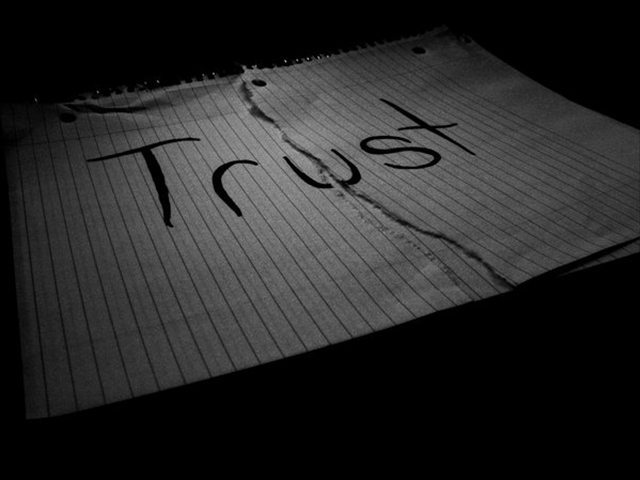The fact that addiction is a family disease isn’t new news. But for some, it may still be a difficult concept to grasp. When one family member struggles with addiction, it affects the whole family. Trust is broken; hurt accumulates, and builds, exploding in an eruption of emotional pain and regrets. We may find ourselves protecting the addicted person, or blaming them, for our own, unhealthy behaviors.
As an active addict, I looked for excuses to use. Because I never told the truth, nothing was ever my fault. If I spent all my money, or didn’t come home, it would be someone else’s fault. Very seldom did I follow through with my promises. I’d make up ridiculous excuses and expect my family to believe them. If they didn’t, look out! My family became so hurt and fed up with me, they lashed out. Yelling, swearing, belittling, blaming, and getting back at – were just a few of the ways we interacted together.
So how does a family mend their relationship after the devastating impact of addiction?
In one word – slowly!
It takes a long time to undo the damage – that’s been done. Learning to trust the addicted person starts with their actions. As the old saying goes, don’t tell me – show me. But it’s not just the addicted person who will have to change. The family needs to do some work, too. Both the family members and the addicted person have found ways to mask, and numb, pain. This blunting of emotions is debilitating, and stunts emotional growth. You may feel much younger than your chronological age, when it comes to your emotions. Reacting to feelings is a sign of emotional immaturity. For a safe relationship to occur, both the family and the addicted person will need to develop a healthy relationship, with their emotions.
For the addicted person this means not taking a drink or drug to feel better.
For the family member this means untangling their emotions, from the addicted persons.
The addict uses to feel better.
The enabler enables to feel better.
The family’s well being becomes dependent on the addicted person’s mood. If the addicted person is having a good day, so is the family. When someone else is responsible for your emotional well being, you feel like a victim.
If only the addicted person seeks help, the family will continue to behave in the same ways. They’ll want to control the addict’s recovery. They may even want to attend meetings with them, just to make sure they’re really going. Without help, the family will remain other focused. Control, hyper-vigilance and emotional dependency, will cripple the addicted person’s chance of a successful recovery.
For families to have the best chance at reuniting successfully, they need to work independently of each other. Just as the addicted person needs treatment, intensive outpatient counseling, aftercare, 12 step groups, sponsorship and accountability, so too, does the family.
Families that are dysfunctional and addicted cannot use each other for support, when trying to untangle family dynamics. It would be like the blind leading the blind. They’d simply revert back to what they know. You can’t possibly help someone adopt new behaviors, if you’ve never experienced them, yourself.
Working as a drug and alcohol counselor, I can tell you this. With no one else does the addicted person behave as badly, as they do with their family. I worked with a young woman once. She wanted her mother to give her money. She’d overspent and did what she always did in situations like this. She called her mother and asked her, for more. The two of them had learned to dance. It went something like this.
The young woman – Mom I need money. Somebody stole my cigarettes (by the way her cigarettes weren’t stolen, she’d smoked them) It’s only ten bucks. Please Mom! I promise I’ll pay you back.
Mom – I told you I’m not giving you any more money. You never pay me back! What do you mean someone stole your cigarettes! To me – What kind of treatment center are you running?
By now, both Mom and daughter have turned their frustrations, on me. It often works this way in unhealthy families. First they turn on each other, and then, if you try to help, they turn on you. This isn’t to say they’re bad people, they’re not. But they are sick. Because both parties have survived by blaming their behavior on the other person, they’re unaware of their own reactions.
To succeed in recovery you need to be self-focused, and have the ability to recognize healthy versus unhealthy, thinking. You must be able to take feedback from others, without becoming defensive and shutting down.
When a family experiences the traumatic impact of addiction, everyone will need time to heal. Learning to live in the here and now is critical to moving forward. Bringing up the past isn’t helpful. Looking for an apology, or forgiveness, is a sign there’s still more healing work, to be done.
The best amends the addicted person can make is to stay sober. To do this they will need to find a support group outside of the family system.
The family can change their role by becoming aware of the part they play. Whether it’s talking with a pastor or church group, a twelve step family group, or in residential treatment, the hurt must be addressed. If not, control, and passive aggressive behaviours, will continue.
Recovery from addiction is possible. Spotting and stopping old behaviours, and learning new communication skills, will greatly improve your family’s outcome.
Re-establishing trust and mutual respect can take months, even years. Be patient. Focus on the changes you need to make, not on what others are doing. Like anything else, the more work you put into you, the quicker you’ll see the longed for results.
If you or someone you know is looking for help, please call this confidential support line for assistance.


